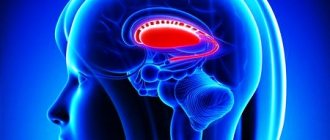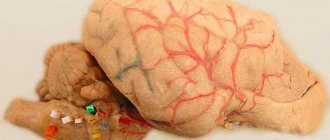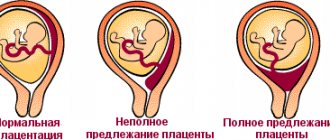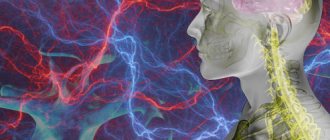Causes of the condition
There are many options to explain the constant morning fatigue. To figure out which one is right for you, you need to do some self-analysis. The cause may be a health problem or poor lifestyle.
Possible diseases that cause sleep disorders:
- Any chronic diseases accompanied by pain or other unpleasant sensations in the body. If such diseases are the cause, then they should be treated by appropriate specialists.
- Disorders that cause respiratory arrest at night.
- Restless legs syndrome.
If morning fatigue is associated with an incorrect lifestyle, then you need to reconsider your daily routine, eating behavior and identify the presence of bad habits. The most common reasons:
- Falling asleep after midnight.
- Inconsistency between sleep patterns and biological rhythms.
- Intermittent sleep.
- Bad habits – alcoholism, smoking, coffee abuse.
- Non-compliance with the daily routine.
- Uncomfortable conditions for a night's rest.
- Worries, stress, fears make you wake up in the middle of the night and prevent you from falling asleep again.
- If a person feels uncomfortable when falling asleep - he cannot fall asleep for a long time, is looking for a position, is nervous - this may be caused by the inconvenience of the bed, bedding, lack of silence or darkness.
With vitamin deficiency, the body works in an economical mode. Energy expenditure is low, so there is not enough strength to do the usual work.
If the search for the reasons does not lead to anything, you can try taking multivitamins. Perhaps it's a lack of them. The loss of strength is especially felt against the background of low hemoglobin. A complete blood test will help diagnose vitamin deficiency.
Sleep and biorhythms
One of the main biological rhythms is the circadian rhythm - 24 hours.
The human body synchronizes with the cycle of day and night, and the period from dusk to dawn is most favorable for sleep. It is believed that 8-9 hours is the optimal sleep duration, and experts advise falling asleep before 11 pm. However, the quality of sleep depends not only on its duration and time of rising. Chronobiology as a science arose in the 18th century. She studies periodic phenomena that occur in living organisms over time. These cycles are called biological rhythms. Chronobiological work includes research in the field of comparative anatomy, physiology, genetics, and molecular biology.
There are two phases: rapid and slow sleep.
Slow sleep:
- Stage I 10–15 minutes. State of drowsiness.
- Stage II 20 minutes. Deeper sleep, but the person remains sensitive to external sounds.
- Stage III 45 minutes. The stage of deeper immersion in sleep.
- Stage IV Deep sleep. 45 minutes.
REM sleep is the fifth stage of sleep and lasts about 60 minutes. A sleeping person is in the most active state; dreams can be remembered. This period is called “paradoxical”, since during this phase the muscles remain relaxed, but the brain, on the contrary, is active and ready to perceive and process information. For healthy sleep you need to go through 3-6 cycles. An easier rise is expected during the light sleep stage - stage 1 or 2.
In accordance with these phases, various applications and gadgets work that analyze sleep and select the most suitable period for getting up. You can calculate these stages yourself and determine the time at which you need to get up.
Therefore, if one of these phases is disrupted or the transition between them occurs too quickly, sleep disturbances occur, regardless of its duration. Disturbed nighttime sleep not only affects daytime functioning, but is also associated with various adverse health effects such as obesity, decreased quality of life, and even mortality.
Clinical manifestations
If a person does not get enough sleep, then he feels sleepy not only in the morning, but throughout the day. Among the main complaints of such people:
- “I can’t get enough sleep, even if I sleep for a long time”;
- “I can fall asleep for a split second even at work”;
- “I can’t work fully: my attention is scattered all the time, preventing me from concentrating, I have no mood, no strength”;
- “I want to sleep all the time.”
If these disorders are caused by sleep apnea, then the person wakes up several times during the night, but does not remember it in the morning. Holding your breath can be recorded by the patient's relatives.
Restless legs syndrome is characterized by uncontrolled movement of the lower extremities, which causes increased brain activity. It is believed that this disease is characteristic of pensioners, but there are cases of manifestations in young people.
Coffee lovers are also at risk. If the consumption of this invigorating drink is not controlled, then caffeine addiction occurs. As a result, after waking up, a person feels drowsy until the body receives the next portion of coffee.
In a healthy situation we do not remember dreams
– If you have nightmares, some kind of recurring dreams that are exhausting, frightening, is this a reason to see a doctor, or can you overcome this somehow on your own? What to do in such cases?
– It should be noted that dreams in the vast majority of cases are disturbing in nature. In this way, the psyche processes stress loads and its experiences. In a healthy situation, we simply do not remember them, and, if we do remember, it is very shortly after waking up. If dreams are intrusive, causing you to wake up frequently, then the story has, rather, psychological background. You definitely need to work with this, but with a psychiatrist.
The somnologist cannot offer pathogenetic therapy. If you just try to relieve the symptoms briefly. But a psychiatrist works with the real root cause, and most often this work takes a very long time.
Everything that enters our dreams in the form of nightmares has a deep traumatic background. This is not a sleep problem, but a psychiatric problem. There is an imaginary idea that a somnologist is about dreams. But a somnologist deals with sleep exclusively as a biological process.
How to normalize sleep
If chronic lack of sleep is not associated with diseases, then you can cope with this condition on your own. What to do in each specific case:
- Those suffering from sleep deprivation should follow the rules of a healthy lifestyle. It is advisable to consume food and drinks for the last time 2-3 hours before going to bed. Immediately before this, you need to do something relaxing, but not strenuous work. There should be room for walks during the day. Fresh air saturates with oxygen, and the sun's rays contribute to the production of vitamins necessary for the body. Physical activity is also important for a person. Its absence can cause insomnia.
- It has been proven that the best time to fall asleep is before 22:00. It is in the interval from 22:00 to 00:00 that the body rests and recuperates. Even if your sleep time is more than 8 hours, but you went to bed after 00:00, your condition will be characterized by weakness, absent-mindedness, and loss of strength. Another condition is that sleep should not be interrupted. If this happens, you should increase the rest period by several hours.
- To get rid of the bad habit of drinking coffee in excess throughout the day, you need to stop drinking the drink for at least two weeks and monitor your condition. If the morning has become cheerful and active, then the reason for lack of sleep is the effect of caffeine.
- Equally important is the comfort of the bed. First of all, the bed must meet all safety requirements and fit the body size. Linen and bedding should be made from natural hypoallergenic material. The room needs to be ventilated at night.
- The consequences of daytime stress can be eliminated on your own. To do this, before going to bed, you need to carry out relaxing procedures in the form of baths, massages, listening to meditative music and others.
In any case, the problem must be solved, otherwise constant drowsiness will lead to neurosis and depression.
Symptoms
To identify a disease that is associated with excessive sleep, you do not need to have a medical diploma, since its symptoms are very pronounced. A person suffering from hypersomnia is constantly drawn to sleep, even if he has slept well.
The presence of this disorder is assumed if a person sleeps at night from 12 to 14 hours continuously. It is very difficult to wake him up, and it is very difficult for him to wake up with an alarm clock. It is difficult for the patient to begin daily activities - he is not able to do physical and mental work. People describe a similar situation in this way: “They raised you up, but forgot to wake you up.” Sometimes an outside observer may even get the impression that the individual is intoxicated.
During the day, drowsiness can “roll in” periodically, suddenly, while memory and attentiveness become worse, brain activity also worsens, and along with this, performance also decreases. The person is lethargic, lacks initiative, looks and feels tired, and his movements are slow. He needs to sleep during daylight hours, but only for some after sleep everything goes away, and for a larger number of patients the condition does not improve at all.
As mentioned, some sufferers have difficulty falling asleep. This can happen anywhere and in any position, and has unpleasant consequences (see above for the description of narcoleptic hypersomnia).
Based on the above, it is not difficult to assume that patients with such a disorder have great problems in everyday life due to their illness. They are unable to perform professional duties at the proper level, may fall asleep unexpectedly, etc. Therefore, excessive sleep duration must be treated. Qualified specialists of the Moscow Psychoendocrinal Center will help the patient thanks to their knowledge and professionalism.
Remember: with pathological drowsiness, the body signals that it is overstrained, which is associated either with an incorrect regime or with more serious problems.
How is insomnia treated?
The first task of a somnologist in treating insomnia is to identify the causes of the problem. To do this, the doctor:
- Collects anamnesis - finds out the features of lifestyle, possible psychological causes of insomnia.
- Conducts an examination - assesses blood pressure, pulse rate, skin condition and other parameters indicating general health.
- Prescribes tests or examinations to identify hidden disorders in the body.
- Refers, if necessary, for consultations with specialized specialists.
Polysomniography can be used to identify the causes of insomnia. Using special equipment, a sleeping person’s body position, respiratory flow, movement of arms and legs, chest, and abdominal wall are analyzed. Electroencephalography and ECG, as well as other types of scans, are performed simultaneously. Based on the results of the examination, a hypnogram is formed - a curve that provides comprehensive information about the structure of sleep. With its help, the doctor determines features and characteristics, records periods of insomnia, and analyzes the quality and phases of sleep.
What is insomnia?
All this is good in theory, but in practice, many people do not get enough sleep, which means they do not restore their energy supply and risk encountering a number of problems.
Typical situation: you get up early in the morning feeling tired and weak. All day at work you dream about going to bed on time in the evening and getting a great night's sleep. And now - the long-awaited evening. It seems that if you touch your head to the pillow, you will instantly fall asleep. However... instead, you just can’t relax, you toss and turn for hours, counting sheep, trying to fall asleep. As a result, only in the morning you fall into a restless sleep for a couple of hours, and get up again with the feeling that you didn’t even go to bed - everything is repeated in a circle.
If this condition recurs systematically, it looks like you have insomnia. Or, in scientific terms, “insomnia” is a sleep disorder: its duration is too short, its quality is poor, or a combination of both factors. It doesn't matter how many hours you sleep. Each body is individual; for some, 6 hours are enough to feel cheerful and full of energy, while others do not get enough sleep even in 8 hours.
A somnologist of the highest category, Ph.D., shared her expert opinion on sleep disorders and improving its quality. Gorbat Tatyana Vladimirovna
:
– A good solution is to take a nap during the day, as long as it does not impair the quality of your night’s rest. If you haven't had enough sleep and you have the opportunity to take a nap during the day, this will help you gain energy. It is important to ensure that the day's rest is not too long, because this can lead to disruption of the regime.
The main symptom of insomnia is a subjective feeling of insufficient or poor quality sleep. Another important sign is problems falling asleep, early awakenings or restless sleep in favorable conditions. That is, if you don’t sleep because you can’t tear yourself away from the series, because of the noise from your neighbors or the bright light of a street lamp, this is not insomnia.
Dangerous consequences
The most unpleasant characteristic of insomnia is the negative consequences for the body. Insomnia greatly affects well-being, work productivity and mood. The consequences of sleep problems can be:
- Stress – lack of sleep increases levels of the stress hormone cortisol. Because of this, a person becomes irritable and nervous.
- Appearance – lack of sleep has a detrimental effect on the condition and color of the skin. Red, swollen eyes do not contribute to attractiveness.
- Excess weight - and it’s not just that “I didn’t go to bed on time - I ate junk food.” After a sleepless night, the body tries to somehow restore strength, so it requires more high-calorie food. Overeating is a faithful companion of insomnia. In addition, some hormones simply aren't produced if you don't sleep, and this greatly affects your metabolism.
- Brain dysfunction – lack of sleep makes it difficult to think clearly, concentrate, and solve even the simplest problems.
- Aging - sleep is necessary for cell regeneration and restoration processes. If this does not happen, the body's systems wear out much faster.
Insomnia also significantly increases the risk of developing a heart attack and stroke, and disrupts the process of bone tissue formation and information processing. Against such an unfavorable background, a variety of diseases can develop.









